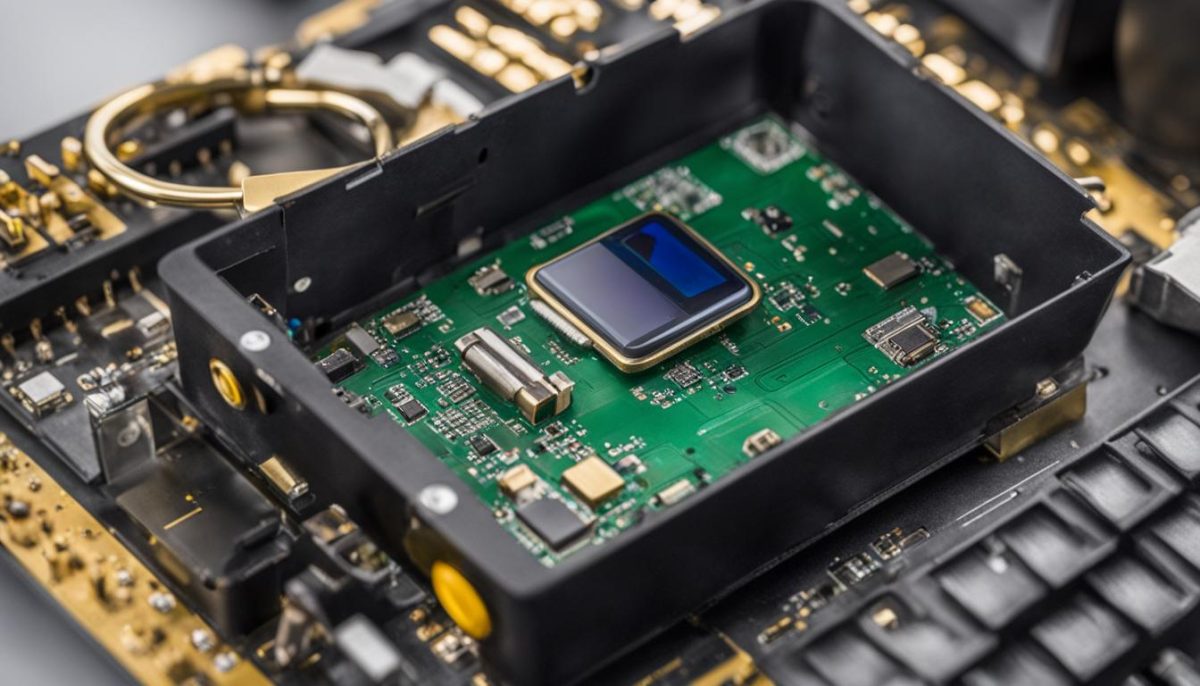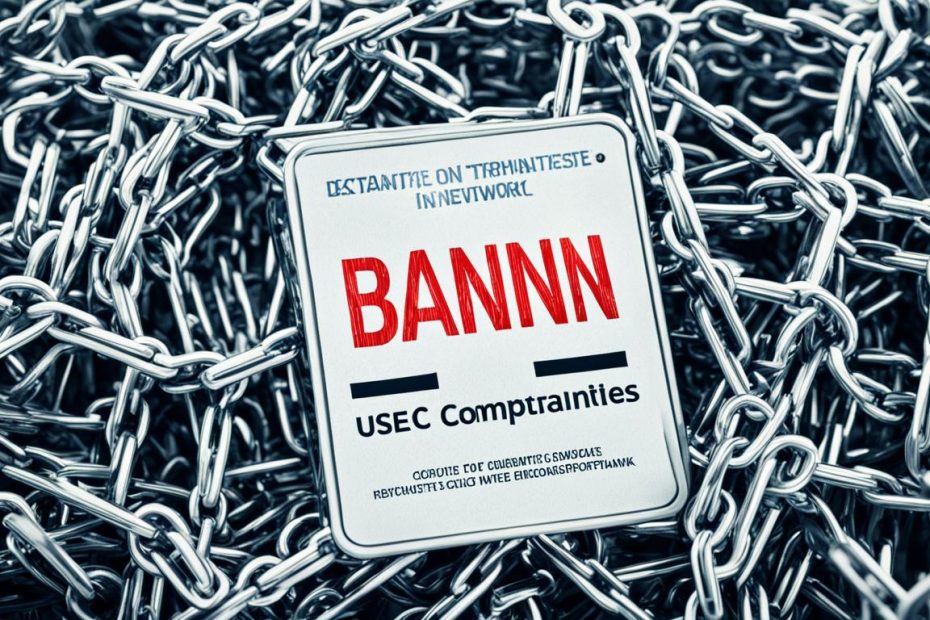Welcome to our article series on hardware bans! In this first section, we will explore the concept of a hardware ban and its implications in the world of gaming and technology. So, what exactly is a hardware ban?
A hardware ban refers to the action taken by gaming and tech companies to restrict or prohibit a user’s access to their services or platforms using specific hardware devices. This means that even if a user creates a new account or tries to access the platform on a different device, they will still be unable to use the services due to the banned hardware.
But how are hardware bans implemented? Typically, these bans are issued based on certain criteria set by the companies. These criteria can include breaching the platform’s terms of service, engaging in cheating or hacking activities, or violating community guidelines. Once a user is identified as violating these rules, the company has the authority to issue a hardware ban on the specific device used.
The effects of a hardware ban go beyond just losing access to a gaming account or a platform. Banned users may also face limitations and restrictions on their devices, affecting their overall functionality in both gaming and tech-related activities. It is important to understand the implications of a hardware ban and how it can impact user access and device functionality.
Understanding Hardware Bans in Gaming and Tech
In this section, we will delve into the specifics of hardware bans as they relate to the gaming and tech industries. Hardware bans are a significant aspect of these industries, impacting users and their access to gaming and tech services. It is essential to understand why they are utilized, the criteria for issuing bans, and the reasons why users may find themselves subjected to them.
Hardware bans are implemented by gaming and tech companies as a measure to maintain fair play and security within their platforms. These bans are typically issued when users engage in activities that violate the platform’s terms of service, cheat, or engage in suspicious behavior that may compromise the integrity of the gaming or tech environment.
Hardware bans in the gaming and tech industries serve multiple purposes. They deter cheating, hacking, and other unfair practices, ensuring a level playing field for all users. Additionally, they help maintain the security and integrity of the platforms, protecting users from potential threats and vulnerabilities.
The criteria for issuing hardware bans often vary depending on the platform. However, common factors that can lead to a ban include using unauthorized software or modifications, exploiting glitches, engaging in toxic or abusive behavior, or attempting to manipulate in-game economies.
When a user is subjected to a hardware ban, it can have significant consequences. They may be permanently or temporarily barred from accessing certain games or online services. Additionally, banned users may experience restrictions on communication with other players and limitations on their overall gaming experience.
Enforcement of hardware bans involves various methods. Gaming and tech companies utilize advanced detection systems that can identify suspicious activities and behaviors in real-time. This includes tracking IP addresses, monitoring player actions, and analyzing gameplay patterns. Once a hardware ban is issued, the company will enforce it by restricting access to the platform for the banned user.
The implementation of hardware bans aims to create a safe and fair environment for all gamers and tech enthusiasts. However, it is important for users to understand the consequences and implications of their actions. By adhering to the platform’s terms of service and engaging in ethical practices, users can avoid the potential consequences of a hardware ban.
The Consequences of Hardware Bans
When a user is subjected to a hardware ban, their access to certain gaming and tech services is limited or revoked entirely. This can be frustrating for users who may have invested time and money into their gaming experiences. In addition to the immediate impacts, hardware bans can have long-term consequences on a user’s digital presence and reputation within the gaming community.
Here is a table summarizing the key consequences of hardware bans on user access and device functionality:
| Consequence | Description |
|---|---|
| Restricted game access | Banned users may be unable to access specific games, including online multiplayer modes. |
| Limited communication | Communicating with other players, such as through in-game chat or messaging systems, may be restricted or revoked. |
| Loss of progress and achievements | Banned users may lose access to their saved game data, progress, and achievements. |
| Damage to reputation | Being hardware banned can negatively impact a user’s reputation within the gaming community, leading to social ostracism and limited opportunities for future interactions. |
| Financial implications | If a banned user has made significant purchases within a game or platform, they may lose access to those purchases, resulting in monetary losses. |
Impacts of Hardware Bans on User Access and Device Functionality
In this section, we will examine the far-reaching consequences that hardware bans have on user access and device functionality. A hardware ban, as we have discussed earlier, is a measure taken by gaming and tech industries to restrict access to certain services or platforms.
When a user is hardware banned, their ability to participate in online gaming or utilize specific tech services is severely limited. This restriction can be frustrating for gamers who enjoy connecting and competing with others, as they are no longer able to access multiplayer features, leaderboards, or engage in cooperative gameplay. Additionally, they may lose access to exclusive in-game content or events that can enhance their gaming experience.
For tech enthusiasts who rely on certain features or applications, a hardware ban can cripple their device functionality. Some devices may have restrictions placed on specific functions or applications, preventing the marginalized user from accessing essential tools or services. This can have a significant impact on productivity and may hinder the user’s ability to perform essential tasks.
The effects of a hardware ban can also extend beyond the individual user. For example, in an online gaming community or tech ecosystem, a hardware ban can disrupt the overall balance and harmony of the environment. Banned users may be unable to interact with their friends or fellow gamers, leading to a fractured social experience and potentially diminishing the overall engagement within the community.
Overall, hardware bans have a profound impact on user access and device functionality. They restrict users from participating in online activities, limit access to essential features and applications, and disrupt the community dynamics. As we continue to explore hardware bans in the next section, we will discuss strategies and options for users who have been subjected to this form of restriction.

Dealing with Hardware Bans and the Future Outlook
For users who have fallen victim to a hardware ban, there are strategies and options available to navigate this challenging situation. One potential avenue is to appeal or seek a resolution for the ban, which may involve contacting the relevant gaming or tech company to present your case. While success is not guaranteed, it is worth making a formal appeal if you believe the ban was unjust or an error.
Another important step to consider is taking proactive measures to prevent future hardware bans. This includes adhering to the terms of service and code of conduct set forth by gaming and tech platforms, as well as refraining from cheating, hacking, or engaging in any activities that violate the rules. By maintaining good online behavior and respecting the guidelines, you can minimize the risk of being subjected to a hardware ban.
Looking ahead, it is vital to stay informed about the current trends and developments in the gaming and tech industries that may impact the prevalence and enforcement of hardware bans. As technology continues to evolve, the methods used to detect and enforce bans may also evolve. By keeping up with the latest news and understanding the policies of various platforms, users can adapt their behavior and practices accordingly to stay in compliance and avoid hardware bans.
In conclusion, while hardware bans can be frustrating and disruptive for users, there are steps individuals can take to deal with them effectively. By appealing bans and taking preventative measures, users can navigate the challenges posed by hardware bans and minimize the risk of recurrence. Furthermore, staying informed about industry trends will enable users to adapt and stay ahead of the curve when it comes to hardware ban enforcement in the ever-evolving gaming and tech landscape.
